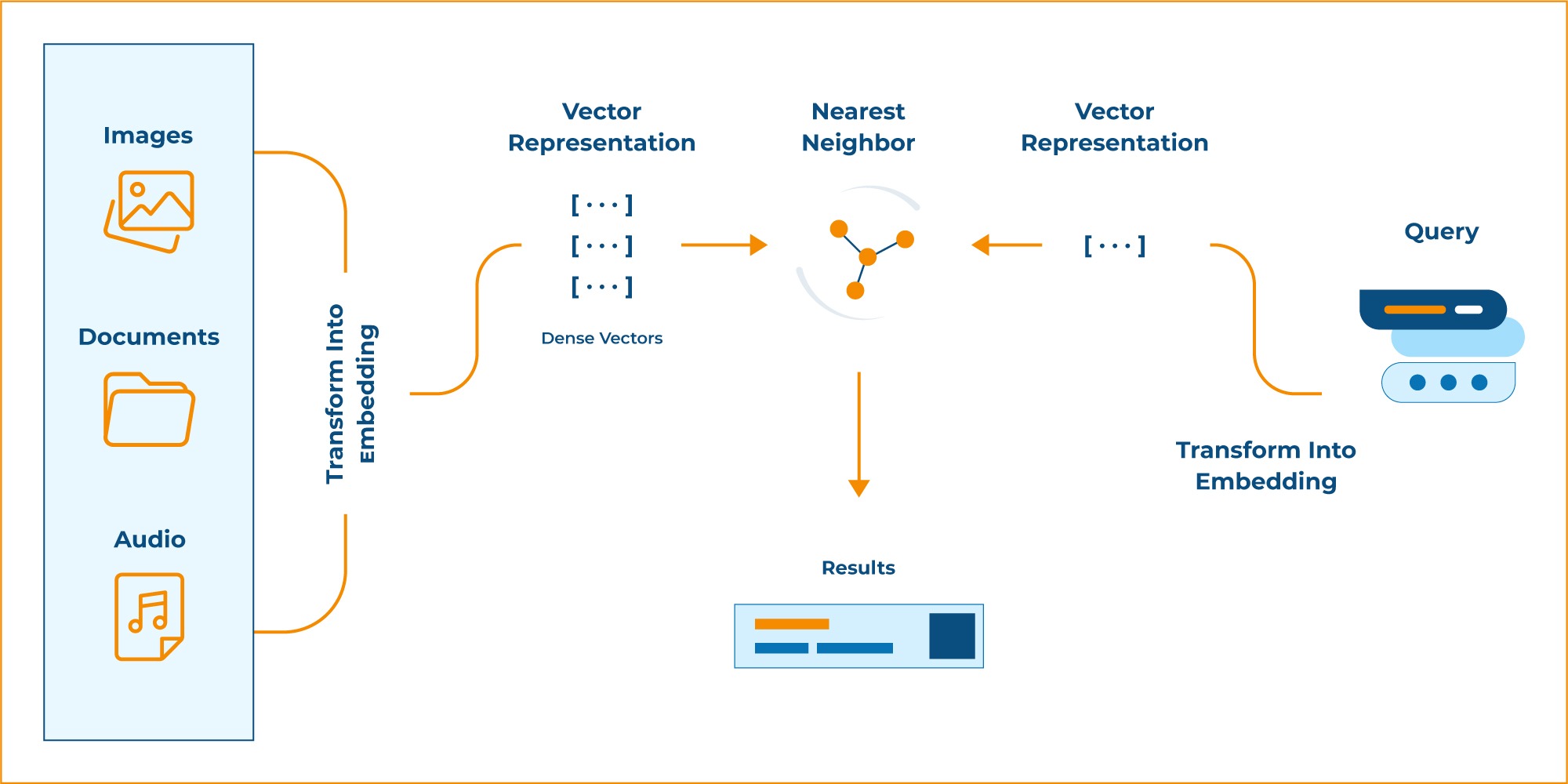
Imagine that you’re a tech enthusiast. You are interested in knowing about the emerging trends in Generative AI. So, you start typing keywords into the search engine, hoping to find relevant blogs and articles. But when you sift through the search results you realize that while some sources are valuable, others seem to be irrelevant and outdated. Frustrating, isn’t it?
To address this challenge, the search landscape is undergoing a revolution. While keyword search and vector search have been a mainstay for years but can struggle with nuance.
A blended approach of established keyword search and cutting-edge vector search called Hybrid Search is on the rise. It promises a future of more accurate and insightful searches. Before we explore the intricacies of hybrid search, let’s revisit the building blocks: keyword search and vector search.
Understanding Search Methods: Keyword vs. Vector Search
Traditionally, search engines rely on keyword matching. When you enter a query, the system scans its database for documents containing those exact keywords.
Techniques like tokenization, and stemming are used to match the accurate keyword to the search queries. After identifying relevant documents, they are ranked based on their relevance using techniques like TF-IDF (Term Frequency- Inverse Document Frequency), Boolean logic, and so on.
This method works well for simple searches, but it struggles with nuances and context.
Vector search takes a different approach. It represents information as vectors, which are like arrows in high-dimensional space. These vectors capture the meaning and relationships between words. When you enter a search query, it’s also converted into a vector. The search engine then finds documents with vectors closest to your query’s vector, essentially finding similar information even if the exact keywords aren’t present.

How Vector Search Works?
Vector search converts the data and queries into vector representations. Now that the query, as well as the required information, is represented as vectors or arrows, finding answers or similar information is like finding the closest vector to the query’s vector. These closest vectors are termed as ‘nearest neighbors’.
Unlike traditional search, vector search uses the distance representation embedded into the vectorization of the dataset to find similarity and semantic relationships.
This concept of nearest neighbor is at the core of how vector search works and there are several different algorithms that can be used for finding nearest neighbors. One such algorithm is ANN (Approximate Nearest Neighbor).

Vector Search Use Cases
Vector search is applicable in many areas. Let’s learn about a few important use cases of vector search:
- Natural Language Processing: The major use case of vector search is in natural language processing. Earlier chatbots, virtual assistants, and language translators were all based on keyword matching. But with vector search the interactions with them have become more conversational as the responses are generated from the information that is contextually similar to the user search query.
- Anomaly Detection and Fraud Detection: Vector search also plays a crucial role in anomaly and fraud detection. Analyzing the user behavior, vector search can detect the deviation from the normal pattern thereby identifying the suspicious activities. This will help organizations to detect and mitigate cybersecurity threats.
Keyword Search Use Cases
Keyword search is also widely applicable across various domains. Here are a few use cases of the same:
- E-commerce platforms: Keyword search helps the users to search for products on e-commerce platforms like Amazon, Flipkart etc. by providing relevant results.
- Enterprise search: Keyword search is also used in various enterprise searches to search for all the relevant documents, emails and other internal resources within the databases of the organizations.
Exploring The Power of Hybrid Search
Hybrid search combines the best of both worlds: keyword accuracy and vector-based semantic understanding. It uses two types of vectors:
✔ Sparse vectors: These focus on keywords and their relevance, similar to traditional search.
✔ Dense vectors: These capture the broader context and meaning of information, like images, text, and other data types.
By combining these vectors, hybrid search retrieves search results that are both relevant to your keywords and similar in meaning to what you’re looking for.
For example, imagine searching for “healthy recipes.” A hybrid search can combine keywords like “healthy” and “recipes” with recipe similarity based on ingredients or dietary restrictions. This might unearth delicious options you wouldn’t have found with a simple keyword search.
Now, the question arises—How do these search results combine into a single ranked list? This is where Reciprocal Rank Fusion (RRF) enters the picture. An algorithm that amalgamates search scores from multiple previously ranked results to generate a unified result set. It is calculated by taking the sum of the reciprocal rankings of each list.
Let’s understand this with an example, A, B, and C are three documents that have run both BM25 search (sparse search) and dense search.

Based on the results, the top document is Document B with a ranking of 1.5, then Document A at 1.3, and Document C at 0.83.
Use Cases Of Hybrid Search
Now that we have a clear understanding of what hybrid search is and how it works, let’s learn about its use cases:
- Enterprise Knowledge Discovery: Organizations have large data repositories, with diverse types of information including structured data, documents, emails, and so on. Hybrid search integrates these data sources and undergoes text-based and vector-based analysis to provide contextually relevant results assisting employees to find responses quickly thereby improving their productivity.
- Social media and content discovery: Hybrid search can improve content recommendations on various social media platforms. It can combine textual relevance with user preference encoded as vectors to provide more personalized and engaging results, resulting in improved customer satisfaction and retention.
Ready to Experience Next-Gen Search? SearchUnify is at Your Service!
As organizations are increasingly adopting numerous types of including but not limited to keyword, vector, and hybrid, the need for a unified search experience becomes paramount.
This is where unified cognitive search platforms can offer a connected and integrated search experience across avenues.
So, are you ready to embark on a journey of unified search? Get first-hand experience with our enterprise agentic platform by booking your demo to witness how we can revolutionize your search experience!










